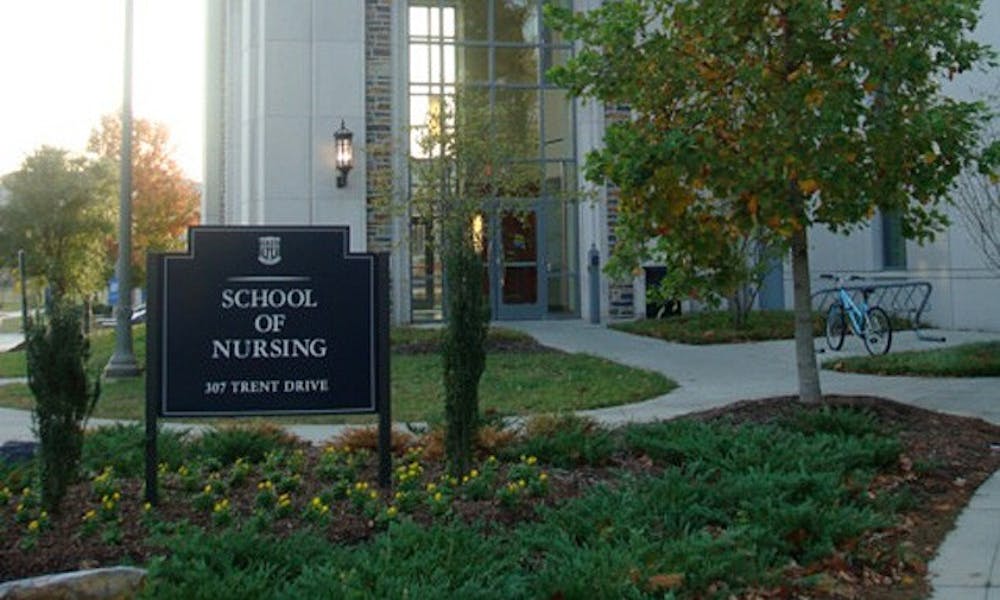Efforts to encourage men to study nursing recently led to national recognition for Duke.
Earlier this month, the University received the 2010 “Best Nursing School for Men in Nursing” award from the American Assembly for Men in Nursing. Catherine Gilliss, the dean of the School of Nursing, said she was pleased that the school’s efforts were being recognized but said she was not surprised given Duke’s efforts.
“We have worked to create a more inclusive environment and our faculty, staff and student body are committed to building a community in which diversity is celebrated,” she wrote in an e-mail. “Nursing has sold itself to many of our male students and faculty members.”
Gilliss said she thinks the inclusion of men in the field enriches disciplinary perspectives and allows the public to view nursing in a different light.
“Men bring fresh approaches to nursing, just as women brought new insights to the practices of medicine and law,” she said.
Students and recent alumni said Duke’s program is very inclusive of male students, but that reputation was not necessarily what brought them to the University.
Robb Holton, Nursing ’09 who will also graduate from the Family Nurse Practitioner program in 2011, wrote in an e-mail that he chose Duke because of the quality of its research and instruction. The presence of male faculty, though, has also enhanced his experience.
“There are excellent male role-models in the clinical faculty at Duke, and it has certainly provided support and personal growth during my education,” he said.
In recent years, the University has continued to attract more male students, noted Clark Schmutz, Nursing ’09. Schmutz was one of four men in a class of 65 students, but the number of men enrolled in the School of Nursing has increased every year since he joined, he wrote in an e-mail.
“We worked hard to include men in the program,” Schmutz said. “The male faculty at Duke were also really helpful and some of them have continued to be great resources in the nursing profession.”
Chris Woods, who graduated with nursing degrees in 2005 and 2008, also said he felt included by the student body as a male nursing student.
“[The School of Nursing] is far advanced in focusing to attract the best students regardless of sex, race or ethnicity. I never once felt excluded based on my sex,” he wrote in an e-mail.
Although many male nurses said they felt the University provides an inclusive atmosphere, they said the perception that nursing is mostly a female profession still exists.
Amato said throughout nursing school he was asked if he was a doctor or in medical school by his patients and their family members. But men can find a place in the profession.
“There are plenty of manly nurses,” he said, adding that he objected to the stereotypes. “The job can be full of heart-pumping, testosterone-pumping moments.”
For some male nurses, it takes a bit of time to get used to being a man in a female-dominated profession. Schmutz said although it required getting adjusted to, he does not think about it as often anymore.
Holton said men are often always visible in nursing but work everywhere from intensive care units to emergency rooms, management and Duke Life Flight, a critical care transport program.
For Woods, serving as an emergency medical technician in the armed forces helped him see the presence of men in nursing as “more of the norm than the aberration.”
He said that the public’s perception of the profession likely limits the number of qualified men willing to pursue a career in nursing. But working in neonatal intensive care—where he is one of three men in a group of nine nurses—Wood said he has never felt like he did not belong.
Get The Chronicle straight to your inbox
Signup for our weekly newsletter. Cancel at any time.

